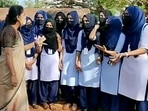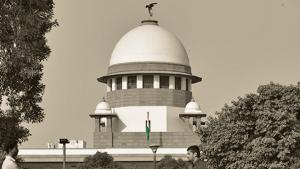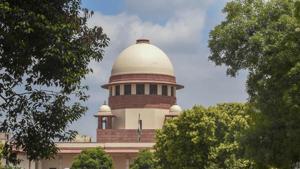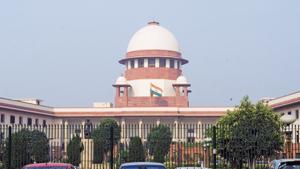Articles by Gautam Bhatia
SC’s decision on Pegasus raises troubling questions
Several issues regarding the spyware case need to be addressed, including why the SC sealed the report and why the State chose not to cooperate during the committee’s pursuit of the truth. As a matter of public interest, accountability and action must be non-negotiable

Updated on Aug 30, 2022 07:30 PM IST
Decoding the problems with the ‘freebie’ debate
The fundamental issue lies in the word freebie, which has no clear definition, making it susceptible to misuse and selective targeting of welfare measures
_1660746859341_1660746877860_1660746877860.jpg)
Updated on Aug 17, 2022 08:40 PM IST
Extend the 24-week limit for abortion to all
In its present form, the Medical Termination of Pregnancy Act does not adequately respect bodily autonomy and reproductive choice

Updated on Jul 24, 2022 07:57 PM IST
India’s laws on hate speech need change
Anti-blasphemy statutes and the legal bar on hate speech are clumsily worded, can’t distinguish between the dissenter and the hatemonger or between speech that is uncivil and illegal

Updated on Jun 22, 2022 10:15 PM IST
It is crucial to reform foreigners’ tribunals
There are several outstanding issues with the regime of foreigners’ tribunals: Extens-ive State control over members, dubious use of evidence, and declaring thousands of people foreigners ex parte

Published on May 19, 2022 07:10 PM IST
Jahangirpuri: Demolition, as vigilante justice, is illegal
Home demolition in response to allegations of rioting is akin to medieval wars where armies would poison wells of villages that were suspected of harbouring enemy soldiers, so that soldiers and innocent civilians would be deprived of water

Updated on Apr 22, 2022 11:24 PM IST
Hopepunk, grimdark, noblebright: Gautam Bhatia on new genres of storytelling
Where does speculative fiction go in a dystopia? New genres suggest that the most likely directions are upward and onward, through stories that champion hope and optimism, collective action, and the promise, at least, of a future less bleak.

Updated on Apr 08, 2022 02:29 PM IST
Rethink the criminal identification bill
It places the privacy of individuals at the mercy of the State; allows for the retention of personal data of convicted individuals for lifetime; and goes against the best practices of data protection

Updated on Apr 03, 2022 07:50 PM IST
Are India’s courts going the Star Chamber way?
The two judgments in the MediaOne case set a disturbing precedent. Effectively, the government can ban a TV channel on the basis of secret evidence, that is then secretly given to the court

Updated on Mar 14, 2022 10:58 PM IST
In India, the dangers of a homogenous public culture
To the extent that the hijab does not communicate a message of discrimination, inequality, or violence, what grounds allow the State, and State institutions, to ban it?

Updated on Feb 07, 2022 07:34 PM IST
The marital rape exception must go
As an expression of the nation’s criminal law, it publicly says that consent is irrelevant to the question of rape in a marriage. For that reason alone, the court should strike it down

Updated on Jan 19, 2022 09:32 PM IST
Gautam Bhatia
Reforming the Foreigners Tribunals
A 2021 Gauhati High Court judgment is significant because it infused a modicum of procedural fairness into the tribunals process in Assam. But much more is needed

Published on Jan 02, 2022 08:18 PM IST
Gautam Bhatia
AFSPA has no place in a constitutional democracy
It is now past time to repeal AFSPA and restore a semblance of the rule of law to the landscape of our constitutional democracy

Updated on Dec 15, 2021 08:25 PM IST
Gautam Bhatia
Pegasus, SC and the idea of ‘national security’
There can be no genuine accountability, or an end to impunity, as long as the concept of “national security” fails to place the people — rather than the government — at its heart

Updated on Nov 08, 2021 01:44 PM IST
Gautam Bhatia
HIV Act: When a law fails to change social attitudes
A judgment by a sessions judge at Dindoshi shows us that the passing of progressive legislation is just the beginning. There is still much struggle ahead before HIV-affected persons can be welcomed into society as equal members

Updated on Oct 18, 2021 05:49 PM IST
Gautam Bhatia
The crisis of India’s Parliament
The judiciary must apply a test of ‘process-based unconstitutionality’, as the executive renders the legislature redundant

Updated on Oct 03, 2021 06:43 PM IST
Gautam Bhatia
Galaxy quest: Will Asimov’s Foundation series find a new life on screen?
There are great expectations from the Apple TV adaptation of Isaac Asimov’s trilogy. Fans and critics hope it will keep up with the times, while maintaining its most distinctive feature — big questions, treated on a breathtaking scale.

Updated on Sep 25, 2021 01:54 PM IST
Gautam Bhatia
Platform workers need justice, not charity
Tipping delivery workers, offering them shelter during rough weather conditions, and other basic gestures of humanity, have all been mooted. While important in their own right, it is crucial to note that the problem is institutional, and requires an institutional solution

Updated on Sep 13, 2021 07:59 AM IST
Gautam Bhatia
Pegasus must lead to legal reform and consensus on the harms of surveillance
The government’s response, so far, has been obfuscation. It has neither confirmed nor denied the allegations, while also insisting that surveillance in India has to be “legally authorised”

Updated on Jul 22, 2021 03:35 PM IST
Gautam Bhatia
UAPA’s inherently flawed architecture and the role of courts
A perusal of UAPA shows how its terms — for example, “membership” of unlawful or terrorist organisations — can be stretched to a boundless degree, allowing the State to persecute individuals for being in the wrong place at the wrong time, possessing the wrong kind of literature, or meeting the wrong kind of people, without anything further.

Updated on Jul 11, 2021 08:52 PM IST
Gautam Bhatia
India’s judiciary and the rights of refugees
At the core of international refugee law is the principle of non-refoulement — that is, refugees fleeing persecution on racial, ethnic, religious, or other grounds, may not be deported back to their country of origin, where their lives will be in danger

Updated on May 06, 2021 05:57 PM IST
Gautam Bhatia
Why a Gauhati HC order on a citizenship case is important
Apart from a careful consideration of the documentary evidence, it noted that the structure of the Foreigners’ Tribunal proceedings was such that those accused of being a foreigner had no knowledge about the circumstances under which they had been referred to the tribunal or the nature of the accusations against them — no documents or evidence had to be furnished to them.

Updated on Apr 20, 2021 06:43 AM IST
Gautam Bhatia
How UAPA curtails personal liberty, undermines fair trial
To stop UAPA from continuing to be the tool of repression that it has become, it is vital that the courts either strike down — or substantially read down — this section, and ensure that years in jail do not become an automatic consequence of the police’s (read: the State’s) decision to charge inconvenient opponents under this law.

Updated on Feb 16, 2021 06:31 AM IST
Gautam Bhatia
The Allahabad High Court stands up for personal liberty
The judgment of the Allahabad High Court represents an important judicial pushback against the dominant ideology of State interference in questions of marriage, including by empowering social and vigilante groups.

Updated on Jan 26, 2021 06:17 AM IST
Gautam Bhatia
Eliminate State and social interference in matters of conscience
The UP conversion law is unconstitutional. But the debate does not end with this one law, as it also replicates many existing provisions from other laws, which have been left standing for too long. India cannot call itself a constitutional democracy until social interference in matters of conscience is eliminated from its laws, once and for all.

Published on Jan 05, 2021 06:52 PM IST
Gautam Bhatia
A tale of evasion, deference and inconsistency
There are a few characteristic features that have marked judicial conduct during this period, which are of serious concern

Updated on Dec 10, 2020 09:27 PM IST
Gautam Bhatia
Domestic Violence Act: The Supreme Court took a progressive turn, writes Gautam Bhatia
The court refrains from treating the entitlements under the DV Act as paternalistic gifts to protect the “weaker” party, but expressly frames them in the language of rights

Updated on Oct 26, 2020 07:10 AM IST
Gautam Bhatia
By elevating labour rights to human rights, the SC opens a door, writes Gautam Bhatia
The importance of the SC’s judgment in Gujarat Mazdoor Sabha lies in its elevation of labour rights to the status of basic human rights, which majoritarian governments are, under the Constitution, obligated to respect, and cannot erase with the stroke of a pen

Updated on Oct 05, 2020 07:15 PM IST
Gautam Bhatia
Devise a new labour law regime for gig economy workers
Carefully-drafted laws that recognise the reality of platform work, and guarantee to platform workers both procedural rights (such as collective bargaining) and substantive rights (such as minimum wages and safe working conditions) are the only solution to this problem.

Updated on Sep 22, 2020 11:40 PM IST
Gautam Bhatia
India needs a law to compensate the wrongly-imprisoned
If individuals have been deprived of months and years of their life for no justifiable reason at all, restitution of some sort must be provided. While lost time cannot be returned, and harassment cannot be undone, at the very least, compensation can mitigate some of the harm caused

Updated on Sep 07, 2020 07:42 PM IST
Gautam Bhatia





